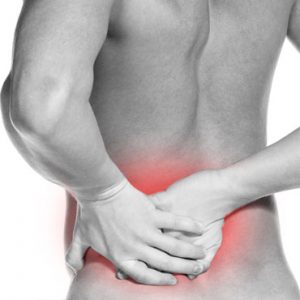
Osteoporosis Risk Reduced with Magnesium Supplementation
Increasing magnesium intake could increase bone density in the elderly and reduce the risk of osteoporosis, a large American study has suggested. Osteoporosis Australia describes osteoporosis as a condition in which the bones become fragile and brittle, leading to a higher risk of fractures than in normal bones. Osteoporosis occurs when bones lose minerals, such as calcium, more quickly than the body can replace them, leading to a loss of bone thickness (bone mass or density). As a result, bones become thinner and less dense, so that even a minor bump or accident can cause serious fractures.
In Australia, one in every two women and one in three men over 60 years will have an osteoporotic fracture in Australia. According to a report issued in 2008, more than 600,000 Australians are now affected by osteoporosis, with this number set to rise. More than 2,000 volunteers aged 70 to 79 took part in a cross-sectional American study by completing a food-frequency questionnaire. All supplements and dietary intakes of magnesium were calculated from ingredients databases. The authors did not identify the exact role of magnesium, but suggested that it may be via calciotropic hormones, by acting as a buffer against acidic Western diets, or by substituting calcium in the bones. Magnesium intake was positively associated by Bone Mass Density in white, but not black, men and women. These observations could be due to racial difference incalcium regulation or nutrient responses.
Dietary sources of magnesium include green, leafy vegetables, meats, starches, grains and nuts, and milk, however most Australians still don’t meet the recommended daily intake of 320mg for women and 420mg per day for men.
The Spinal Centre’s Comment:
If you know or have known anyone with osteoporosis, you will have seen the devastating effects this preventable ailment can cause. Leaving the sufferer somewhat immobile for fear of fracturing a bone, osteoporosis simply does not get the media attention and research that it deserves. Magnesium is needed for proper muscle function, growth, repair, energy production and respiratory health. It is also crucial for calcium absorption. Without enough magnesium, calcium can collect in the soft tissues and cause one type of arthritis. Not only does calcium collect in the soft tissues of arthritics, it is poorly, if at all, absorbed into their blood and bones. But taking more calcium isn’t the answer – it only amplifies the problem.
Magnesium taken in proper dosages can solve the problem of calcium deficiency. It will promote the absorption of calcium into the bones where it is needed, preventing osteoporitic conditions and pain.
Magnesium has a range of other benefits. In fact, magnesium deficiency will not only lead the way to osteoporosis, magnesium deficiency can lead to:
- Muscle cramping, pain and spasms
- Chronic back, neck and muscle pain and stiffness
- Heart disease and high blood pressure
- Irregular heart beats and palpitations
- Diabetes
- Depression
- Arthritis
- Asthma
- High cholesterol
 In short, if you want to prevent osteoporosis, and other illnesses and disease, you need to supplement with magnesium. Most of the patients that come into the clinic are chronically magnesium deficient. When they begin to take a magnesium supplement, their improvement is quite astonishing. They wake with less muscle pain and stiffness, their pain levels are reduced and they are able to return to normal duties much quicker and easier. We stock the best magnesium muscle relaxants available at The Spinal Centre clinic.
In short, if you want to prevent osteoporosis, and other illnesses and disease, you need to supplement with magnesium. Most of the patients that come into the clinic are chronically magnesium deficient. When they begin to take a magnesium supplement, their improvement is quite astonishing. They wake with less muscle pain and stiffness, their pain levels are reduced and they are able to return to normal duties much quicker and easier. We stock the best magnesium muscle relaxants available at The Spinal Centre clinic.
What else can I do?
Building strong bones, especially before the age of 30, can be the best defence against osteoporosis, and a healthy lifestyle can be a major factor in keeping bones strong.
For those over 30, don’t despair – what you do now can still have a massive impact on bone health in the future.
- Knowing your exact magnesium levels is very difficult, and supplementing with the wrong amount can lead to a range of problems. This is why we have introduced The Spinal Centre Magnesium Level Test. This test, and corresponding report, will tell you your exact magnesium levels, and which natural supplement to take to correct these levels. This valuable information could truly make a huge change to your life now and in the future. Click here for more information.
- Know what you need. Choosing natural medicine can be hard. We should all be taking the basics, but you really should know what your body needs. This is where the The Spinal Centre consultation comes in. By completing the consultation, you will have a fully personalised guide to your specific areas of health that need addressing, and which natural medicines to take to promote optimal health. Click here to read more about The Spinal Centre consultation.
- Are you getting enough sunshine? Vitamin D plays an enormous role in our health, immunity and bone health, so if you’re not getting enough everyday, you could be putting yourself at risk. The Spinal Centre Vitamin D Level Test will give you your exact vitamin D levels, as well as a detailed supplementation schedule to correct any deficiencies. Click here for more info.
- Getting enough calcium? In terms of calcium, most of us really don’t get enough. Unless you consume vast amounts of fresh dairy, chances are your levels are low. A
good calcium supplement/magnesium combined formulation like Metagenics Fibroplex Plus will provide you with your daily doses of these vital nutrients. - If you suffer from arthritis or joint inflammation, you need to start supplementing with a good all-round bone support formulation. In terms of a glucosamine/chondroitin formulation, our best pick is Metagenics Anthrax. Arthrex contains the glucosamine and collagen to help build bone and cartilage, and reduce symptoms of joint inflammation and pain.
- Complete regular, weight-bearing exercise. Whilst cardio is still very important, we need to perform regular weight-bearing exercise to keep our bones, muscles and joints strong and healthy. Aim to complete a light weights program 3-4 times per week, every week, with some cardio sessions in between. For some stretching and exercise ideas, go to ‘The Wellness Protocol – Stretching and Exercise.’
- Reduce the grog and smokes. Regular consumption of 2 or 3 drinks a day increases the risk of osteoporosis. It interferes with the absorption and use of calcium and vitamin D and other bone nutrients, as well as contributing to obesity and diabetes. Cigarette smoking was first identified as a risk factor for osteoporosis more
than 20 years ago. Though the exact cause has not been found, recent studies have shown a direct relationship between tobacco use and decreased bone density. This isn’t to mention the other massively detrimental health effects cigarette smoking has. Quit now, instead of tomorrow, and stop kidding yourself.
Further Reading:





